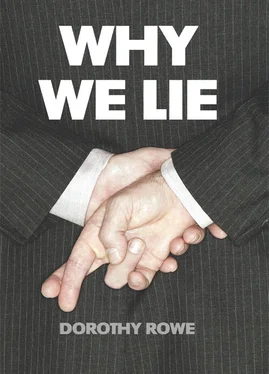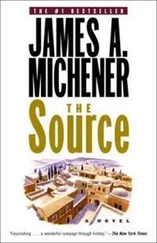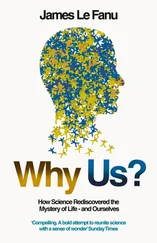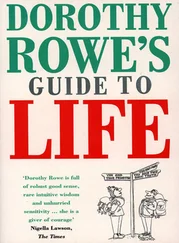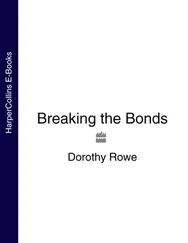Chapter One How Can We Know What Is True?
‘Why do I lie? Because I can.’
My taxi driver was presenting me with an obvious though rarely stated truth. Then he added, ‘Lying keeps me out of trouble.’ Truth got him into trouble. Indeed, truth was trouble. Not just inconvenient truths but the perennial question, ‘How can I be sure just what is true?’
Lying is easy. All we have to do is to make up a story. It needs to be believable, but, if you tell your story with sufficient confidence and charm, many people will believe you because it suits them to believe you or they cannot be bothered to work out that you are lying and why. The truth is rarely as clear-cut and consistent as a lie. A lie is a fantasy that we can structure to suit ourselves. To find the truth we have to look at the world around us and inside ourselves, yet we are ill-equipped to see what is actually there.
We see the world, not as it is, but as we are. The world is a far less predictable and controllable place than we want it to be. Unambiguous communication with one another is impossible.
Our physiology condemns us to a lifetime of searching for the truth and then never being entirely sure that we have found it. A great many people, including people who regard themselves as being well educated, do not know this. Consequently, either they are mystified by what people do or they create some simplistic explanation that, in effect, explains nothing. If they are told that all we can do is to construct a picture of the world around us and then treat what we see as if it is real, they find this very disturbing. They want certainty, yet how can we be sure that what we say is true is actually so?
From the moment we are born, we begin learning how to construct pictures of what might be around us, and then we learn how to treat these pictures as if they were real. To live day by day we have to be able to trust our as if perceptions. If we begin to doubt them, we can no longer function efficiently in the world. This happened to me when I was a child.
I had been born into a very peculiar family. It provided me with splendid training for becoming a psychologist but, at the time, living with my family was very difficult. My father’s mother and sisters, all strong, intelligent women, had shown him that, charming and lovable as he was, he tended to be feckless and needed to be kept in order by a strong, good woman in the way they had kept him in order in his youth. When he returned from the First World War, he met and fell in love with a young woman who seemed to be the strong, good woman he believed he needed. In this he was wrong. He was right in that she was good. He would often say to me, ‘Your mother is a good woman’, but in a tone of voice that suggested that a little less application of her virtue in her judgements would not go amiss. To her, her beliefs were absolute truths, and she would never admit being wrong in any of her judgements or deeds. She was an obstinate Presbyterian who did not attend church. If asked why, she would have said that she did not approve of the minister. She would never admit the truth, which was that she was frightened of anyone who was not immediate family. She expected to be rejected, so she always got her rejection in first.
To keep herself safe she turned her home and garden into a fortress where she could control her family and anyone who dared to seek entry. She maintained her power by resorting to tantrums, sulks or an asthma attack if her decrees were ignored or challenged. Compared to my mother, Calvin and Luther were free-thinkers. No idea that was contrary to her ideas could be uttered in her presence. All too often I forgot this. I would be excited by an idea or an event and out it would come. If what I said conflicted with the way my mother wanted to see the world, she would shut me up with, ‘You’re lying’, or ‘That’s not true.’
Once she had spoken, discussion was at an end. I would go away and, if possible, check my sources, perhaps a book I had read or a lesson in school. Finding that I was right was very reassuring, but often the source of what I had told my mother was myself. Could I trust myself to report myself correctly? Had the event actually occurred or had I imagined it?
The issue for me was not a moral one. I was not asking myself, ‘Have I deliberately and wickedly told my mother a lie?’ It was not a moral issue for my mother. She did not chide or punish me for lying. She was stating absolutely and incontrovertibly that I was incapable of knowing what the truth was. She was attacking the very fundamentals of my existence. I was mistaken in what I saw, heard, thought and felt. This robbed me of any point of stability and certainty in what I was experiencing. Under the onslaught of her endless criticism, and that from my elder sister, I began to doubt that I could distinguish what I actually experienced from my dreams or from my fantasies. We are not born knowing how to distinguish what we call our perceptions of the real world from our dreams and from the stories (fantasies) we create. Toddlers struggle to learn how to do this. In adult life we occasionally wonder, ‘Did that really happen or did I imagine it?’ We also have those moments of confusion when we see something fairly clearly and then, on further inspection, what we thought we saw proves to be something else altogether. When we make these kinds of mistakes, we often mutter to ourselves, ‘I must be going crazy.’ If we are confident in ourselves, we can dismiss these mistakes as matters of no importance, but, if we doubt our ability to operate in this world, mistakes like these further diminish our self-confidence and increase our confusion.
There was no one I could talk to about what was happening to me. Sometimes my doubts became so great that I lost all confidence in the solidity of the world around me. Just putting one foot in front of the other became a matter of defying my doubts. I knew that I could easily have lost my grip on reality and plummeted into the unknown.
Now I know that what I was experiencing was not unusual. Most people have this experience at least once in their lives because few people live lives devoid of disasters. A disaster can be something that everyone would agree was a disaster, or it can be a very private matter, a loss of hope or a grave disappointment, but, whichever it is, in the chaos of the disaster, our trust in reality can fail. We can find that the world around us ceases to be real: or that which we call ‘I’ vanishes, leaving a hole the size of the universe inside us. If we can manage to survive this state of complete uncertainty, sooner or later our world becomes real again: our ‘I’ becomes safely lodged inside us again.
Two things saved me. My mother was physically lazy. She did not follow me on my excursions to the bush or the beach. She never came to my school to talk to the teachers or to attend a function there. Away from her, my confidence would revive. But it was books that developed my confidence by showing me how differently different individuals saw themselves and their world. If I did not see things the way my mother did, then that was to be expected. Literature demonstrates that each of us sees everything in our own individual way. For instance, two people look at a tree. They agree that what they are looking at is a tree. However, one person sees a beautiful, warm, friendly tree and the other an ugly, strange and possibly dangerous tree. Thus the tree itself is true for both these people but that which each person has imposed on the tree is an individual truth. There are truths which we share and truths which are our own. Shared truths make relationships and society possible: individual truths are the essence of who we are as a person.
Whenever my mother told me I was lying she was attacking both my confidence in my ability to understand what was going on around me and my sense of being a person. We are not born knowing how to understand our environment and knowing who we are as a person. We spend our childhood learning this. In calling me a liar my mother was being as destructive to me as she would have been had she attempted to murder me. In my childhood I became aware of the two forms of attack. She would not only hit me but occasionally be so beside herself with rage that she would threaten to kill me and then kill herself. As I grew into a strong, solidly built child my fear of what my mother could do to me physically diminished. However, her attacks on me as a person continued until, in my mid-thirties, I left Australia and put half the world between my mother and myself. By then I had regained my confidence in the truth of my perceptions. I had no doubt about the importance of a meticulous search for truth, both our shared truths and our individual truths.
Читать дальше
